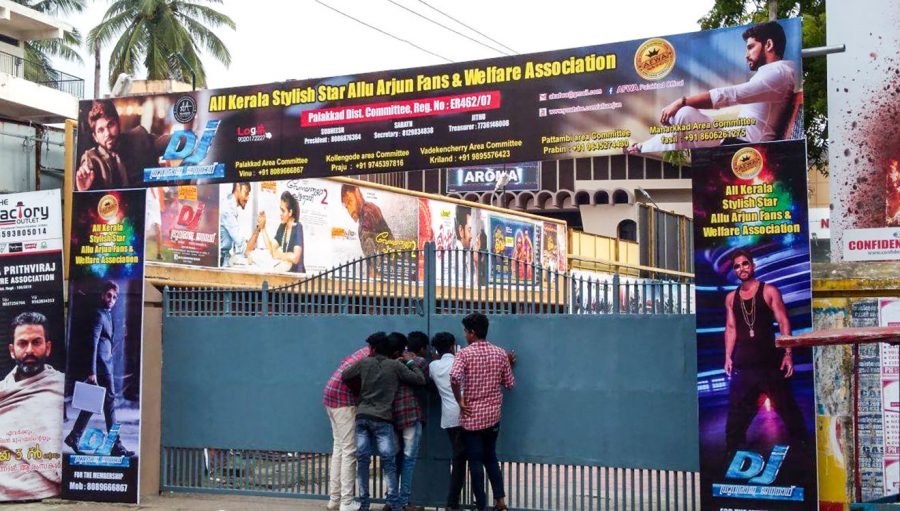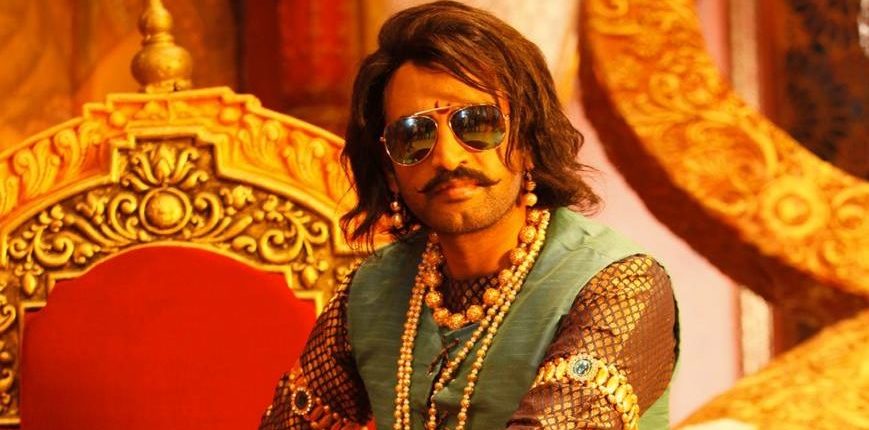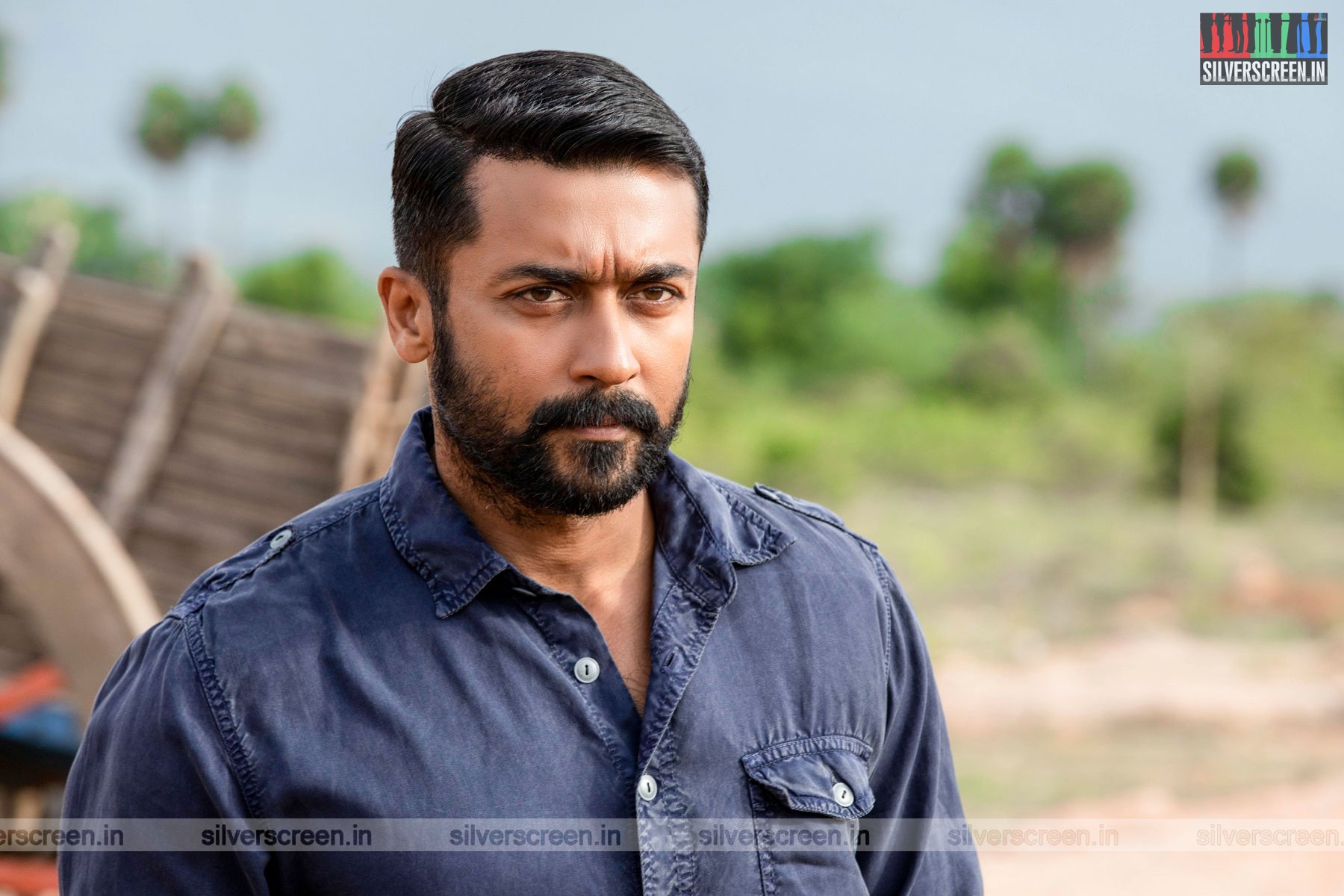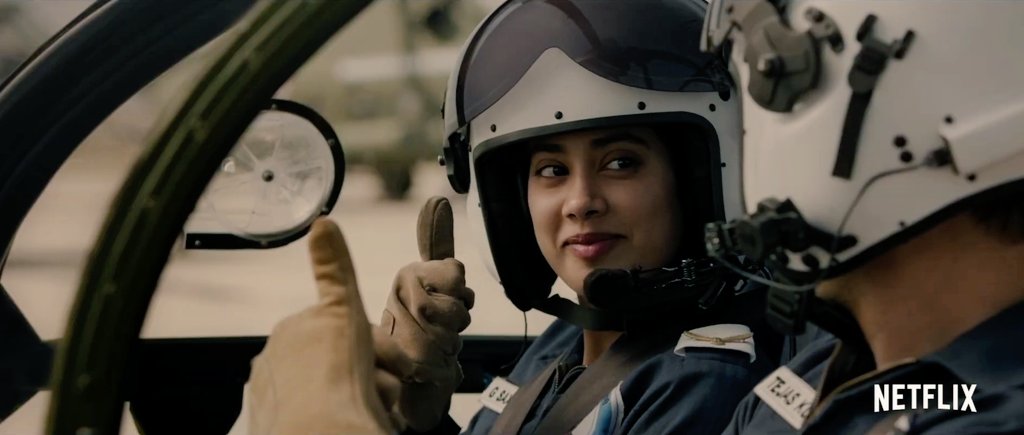In August 2012, actor Allu Arjun arrived in Kochi to celebrate the success of his Malayalam film Gajapokkiri, dubbed from the original Telugu. It was the actor’s first major public appearance in Kerala, a State that did not speak his language but had adopted him as its own. At Savitha theatre in the city, thousands of the actor’s fans, wearing t-shirts with “I’m Allu Fan” written on them, waited to catch a glimpse of him.
Malayalam film industry was passing through a lean phase when the Telugu star stormed into the picture in 2006 with the dubbed version of Arya. The 2004 Telugu film, produced by Dil Raju on a budget of Rs. 4 Crore, garnered a whopping Rs. 18 Crore from Telugu box-office, becoming the top grosser there that year. The dubbed version established Allu Arjun as a superstar in Kerala too, at par with the reigning stars such as Prithviraj and Jayasurya. His contemporaries in Tollywood, Anushka Shetty, and Ramcharan Teja, also have a considerable fan following in Kerala, but it’s 34-year-old Arjun who tops them all.
The dubbed versions of Telugu films are a hit in the Hindi belt where they are aired liberally on local cable and satellite channels. But Kerala is a rare market where Telugu films dubbed to vernacular language get a theatrical release, often on the same day as the original Telugu, and manage to become a commercial hit.
“Earlier, Telugu films used to be dubbed in Tamil and released in Kerala. Mani Ratnam’s Geetanjali and several films of Chiranjeevi, the then superstar, arrived in Kerala theatres that way,” says Sukumar Thekkepatt, a leading film producer in Kerala, who says that it was Allu Arjun films that opened a market for Malayalam dubbed versions of Telugu films. “He (Allu) still doesn’t have a big market in Tamil Nadu or anywhere outside Telugu, but in Kerala.”
Arjun even has a nickname ‘Mallu Arjun‘. According to a TOI report, Aasal, starring Ajith, a much senior star, could not be released in 2010 in the Malabar and Travancore areas because the audience preferred watching Allu Arjun’s Arya 2. Taking into account his popularity in the State, the actor shot his film Varadu in Kochi and Palakkad. His superior dancing skills and ability to entertain struck a chord with Kerala’s young audience.
Arya was followed by films such as Bunny, Happy and Arya 2, in all of which Allu played a vivacious young man, head over heels in ‘true love’. He made heartbreak, unemployment and perennial boyishness look cool in a cultural domain dominated by macho men like Mohanlal and Mammootty. All his films are dubbed to Malayalam and released in theatres in Kerala. They promptly get a considerable satellite business and are aired on major television channels in the State. The actor’s upcoming film Naa Peru Surya, Naa Illu India is already making a buzz. It has cinematographer-filmmaker Rajeev Ravi handling the camera, an added advantage in the Kerala market.
The growth of Allu Arjun’s stardom in Kerala, where no Telugu star has ever enjoyed a major fan base, is largely due to Khader Hassan, a small-time producer from Thiruvananthapuram. It was he who brought in Arya, starring the then lesser-known Telugu actor Arjun, to Kerala. He produced a dubbed version and released it across the major centres in the State through his distribution company, Redak Media.
“I did not foresee his stardom,” says Hassan. “I just had some confidence in Arya. It had the potential to be a superhit. It’s a highly energetic film, and Allu was so energetic. There was no such actor in Malayalam at that time – young and energetic, whom family audiences and youngsters could love, like Vijay in Tamil. Allu had that charm,” he adds.
Hassan started off as a producer in Mollywood. The first two films he produced – Swapnam Kondu Thulabharam and Nakshathra Kannulla Rajakumaran – flopped at the box-office, eroding his finances. That prompted him to change tracks, and try his hand at films in another language. “Once, when I was in Chennai, I happened to watch on TV a song from the Telugu film Nuvve Nuvve. It was very cute, as were the visuals. I thought youngsters in Kerala might love this film. That was in 2001. I didn’t exactly research the market. I bought the dubbing rights, gathered a team of writers and voice-over artists and got the work done,” he says.
Nuvve Nuvve became Pranayamaay. Satheesh Muthukulam wrote the dialogues, and Rajeev Alunkal, then a novice, handled the lyrics. “We would sit together and discuss how the lyrics and dialogues had to be. I didn’t want them to sound awkward,” says Hassan, who already had a distribution agency in Kerala; it made theatrical release easy. “We promoted the film like we would promote a film starring newcomers.” Pranayamaay was followed by films such as Nilaavu Pole, a dubbed version of Ela Cheppanu, starring Tharun and Shriya. Hassan also brought to Kerala Happy Days, a campus film by Shekhar Kammula, starring a bunch of fresh faces. The film became popular in the State.
But, it was Allu Arjun’s films such as Arya, Happy, Bunny and Krishna that turned Hassan’s fortunes. The industry would agree that Allu Arjun’s stardom in Kerala was largely shaped by Hassan, who registered fans’ associations for the actor to promote his films. The first unit was registered in Vellanad area of Thiruvananthapuram in 2006. At present, the Telugu star has over 300 such units in the State.
“I chalked out a market plan for Allu Arjun. I knew it was important to create a superstar for the dubbed films to be superhits. So, I took the initiative to form fans’ associations for Allu. We distributed over 15,000 ID cards under the banner of Allu Arjun Fans Association in 2003.”
The response was great. Famed voice artist Jismon Joy, now an established filmmaker with three movies to his credit, was chosen to be Allu’s voice in Arya after a massive audition. The makers were looking for a soft, youthful voice for the actor whose forte was boyish characters, and Jismon fit in perfectly.
Jismon continues to dub for Allu Arjun, although Hassan no longer distributes the actor’s films in Kerala. “Allu’s fans tell me that they can’t imagine another voice for the actor,” says Jismon.
Hassan notes that although a section of the Malayali audience does not accept the gravity-defying action that is common in Telugu commercial films, another section of youth enjoys it. “See the number of youngsters registered in various fans’ associations of Allu Arjun across Kerala,” he says.
When Hassan started producing and distributing dubbed films, the concept of satellite rights wasn’t very prevalent. Television channels had not yet proliferated. Surya and Asianet, the two powerful players, were not willing to air dubbed films. Now, all of them telecast dubbed films, especially those starring Allu.
“After a few films, I became a familiar name in Tollywood. I received an offer to make a dubbed version of films such as Eega and Mirchi. Prabhas wanted me to take up the dubbing of a few of his films,” says Hassan, adding that he lost the opportunity to take up Baahubali because he was working on his directorial. “That was a foolish decision,” he says.
It’s been over five years since Hassan produced a dubbed film. In January, he released Njanum Ente Sreeyum, the dubbed version of Oh My Friend, starring Siddharth, Shruti Haasan and Hansika, which was released in Telugu in 2011. “I bought the dubbing rights the same year, but there was a delay in release,” he says. Hassan’s last major release was in 2012 when he distributed Gajapokkiri. He took a break for his directorial debut Friendship, which released in 2016.
Hassan’s directorial debut Friendship, which he had also produced, sank at the box-office without a trace in 2015. The film had a youthful cast and was made on the lines of Telugu entertainers such as Happy Days. However, Hassan missed the point that the new generation wave had transformed Malayalam cinema beyond recognition from what it used to be in the first decade of the 21st Century. The failure of the film devastated Hassan who had already incurred a financial loss from the distribution of a few dubbed films.
“I was very ambitious when I started out. I dreamt about changing the industry and making a mark. I don’t know if I have done anything at all. Sometimes, I feel I have accomplished nothing,” says Hassan.
***
Prabhu, a Kerala public transport bus conductor, is one of the founding members of All Kerala Allu Arjun Fans and Welfare Association, headquartered in Thiruvananthapuram. “When I first watched Arya at Trivandrum’s Anjali theatre, there were precisely four people, including me. I was heartbroken that such a good film wasn’t getting an audience. So, I met Hassan sir and offered to promote the film,” says Prabhu. “So Hassan sir promoted the film on TV channels and other media, while I travelled to Sivakasi, and spent money from my pocket to arrange for posters, flex boards… I am not a rich man. Everything drilled a hole in my pocket,” he reminisces. Prabhu, like most fans of the actor, was charmed by his dancing prowess and the youthful romance in his films. “I hadn’t seen any other actor dance like that. His dance numbers are highly popular in the State.”
The fan frenzy is highest in Kollam, says Thanseer N, a clerk at the College Of Engineering Trivandrum, who is also president of the fans’ association. “In Kottarakkara, Santhosh, an auto-rickshaw driver, donates all the money he earns during the day to our charity work,” he says, proudly. The association often organizes the re-release of films such as Krishna, Arya and Happy with the help of Hassan. Recently, when Allu Arjun was on the Kerala-Tamil Nadu border for a shoot, it was the Malayali fans’ associations that arranged food for him. “Allu asked us to support his cousin Ram Charan the way we supported him, and we started a fans’ association for him as well, ” says Prabhu.
Allu has a huge influence over youngsters and the working class, says Prabhu. Many young fans learned Telugu by watching the actor’s films, and kids took up dancing as a serious profession inspired by his performances. “My son is named after Allu’s son. Ayaan,” says Thanseer.
***
Rajeev Alunkal, 45, of Arya fame, isn’t involved in the ‘dubbing’ industry anymore. He decided to stay away from it because he was losing out on opportunities to work in the mainstream. “But, I wouldn’t say working in dubbed films was entirely bad. It paid well and promptly,” says Aalunkal, whose lyrics for Arya and Pranayamay were popular at the time of the films’ release. “I never blindly translated the Telugu lines. I trans-created. I did not know what the original Telugu lines meant; I wrote original lines based on the tune, rhythm, and situation.” One of the popular songs he wrote, from the film Pranayamaay, goes like this: “I am very sorry, oru naalayiram sorry.” This line was used in the film’s promotional posters. He recalls that when Bollywood cult romance Maine Pyar Kiya was dubbed into Malayalam as Ina Praavukal, the famous song Kabootar Ja Ja Ja became the rather silly Kapothame Po Po Po. “Would the film’s heroine, a teenager, use an unusual word such as Kapotham? I was careful to not make such mistakes.”
Rajeev was born and brought up in Vayalar, the birthplace of one of the most revered lyricist-poets in Malayalam. “I always looked up to him,” says Rajeev. “Mainstream Malayalam cinema industry regards dubbed films as sub-standard. After working in a bunch of Telugu dubbed films, people started associating me only with those films, even though I had simultaneously been working with people such as Priyadarshan (Vettam),” says Rajeev.
It does not help that none of the film awards in Malayalam considers lyricists and singers who work in dubbed films for recognition. “It’s not an easy job to write lyrics that match the energy of the songs composed by people such as Devi Sri Prasad (DSP),” says Hassan, adding that he has been having a hard time finding talented lyricists to work in his films.
***
Like Prabhu and Thanzeer, Alunkal too agrees that the success of dubbed films in Kerala is because of Hassan, who singlehandedly identified an untapped market for Telugu films in the State.
Director-producer B Unnikrishnan, whose banner RD Illuminations stepped into the vacuum in the dubbed film industry in Kerala after Hassan took a break, says that he doesn’t make much profit out of this business. “I ventured into the distribution of these films because of friends such as Allu Aravind in the Telugu film industry.”
His first release was Allu Arjun’s Yodhaavu, the dubbed version of the 2016 Sarrainodu. “It was for my friends that I decided to give this space a try,” says Unnikrishnan, whose Malayalam film Thriller was dubbed and released in Telugu, and his latest Villain, is preparing to be released there too.
“The Kerala audience has a varied taste,” says Unnikrishnan. “People like watching Telugu films that are colourful entertainers, but when a Malayalam film tries to imitate that style, they reject it,” he says. “The secret to making a successful dubbed film is to tweak it to suit the tastes of Malayalees,” he says. “Being a filmmaker myself, I involve myself in re-editing some portions, and writing dialogues to suit Malayali sensibilities,” he says. For instance, he says, Brahmanandam’s brand of comedy might not work in Kerala, so those portions are partially removed,” he explains. “My films are better in quality when compared to those released before Sarrainodu. So, they do good business. Now, producers personally approach me to distribute their films in Kerala, ” he says.
***
Is the dubbed film industry a profitable business anymore? Not really, says Hassan. “Now you will have to spend at least Rs. 60 lakh to promote a film in the state. Apart from Baahubali, no Telugu film has earned big money from the Kerala market.” says Hassan.
Movie piracy adds to the woes, he says. “Two months go, I announced the release of a new dubbed film. Soon, a copy of the original surfaced on YouTube, and the number of views is over 35 lakh. I lost a substantial number of people from my target audience,” says Hassan. The simultaneous release of the original and dubbed version can solve the issue of piracy to a large extent, he says. “I tried that in Badrinath. It was difficult, but I released the Telugu and Malayalam versions in Kerala on the same day as in Andhra Pradesh. I managed to make good money, although the movie received a lukewarm response at the box-office.”
Sukumar Thekkepatt, who is a part of the Global United Media that released Baahubali franchise in Kerala, is of the opinion that the business of dubbed films is a shot in the dark. “It doesn’t matter if the star has a huge fan following. If the subject isn’t good, the film won’t be accepted. It is as simple as that,” he says. “Just because Baahubali was a huge hit, one shouldn’t assume that any film starring Prabhas or Anushka will work in the Kerala market. For one, Bhaagamathie didn’t do good business in Kerala. Similarly, Allu Arjun’s films, if they are mindless masala entertainers, will be rejected by the audience,” he says, explaining the waning of the dubbed film industry in Kerala over the past few years.
Both Thanseer and Prabhu say they became fans of Allu Arjun after watching films of his that narrated the stories of simple youngsters. His more recent films are not their cup of tea. “But, it’s an industry, and Allu isn’t a young star anymore. He commands huge business,” reasons Thanseer.
The fans are also wary about losing touch with their star as he grew from a novice star kid into a superstar. “We have travelled to Hyderabad several times to meet Allu. He is fond of his Malayali fans,” Prabhu says. But over the last two years, I haven’t got an opportunity to meet or speak to him. Now, his managers handle our messages and calls. They don’t know the effort we have taken to make him a Superstar in Kerala. They deal with us impersonally,” says Prabhu.
Thanseer says Hassan is being sorely missed. “He was one among us and would consult us before releasing every film. We would meet and talk often. He used to help us financially. Now, things have changed. New players such as B Unnikrishnan handle things through managers. Professional designers in Kochi to do the posters and flex boards. Dubbing and recording are done by Hyderabad-based people, and they just distribute the film,” he says.
Khader Hassan lost his monopoly in the business of dubbed films when richer corporate production houses entered the field, and the price of dubbing rights shot up. “Recently, I asked Hassan if he would make a comeback to the industry, but he didn’t sound very positive. He might not be able to afford the sum quoted by corporate production houses,” Prabhu says.
However, the Kerala fan associations of the actor are active as ever. Prabhu used to be an active member of the Arts Club as a student at University College in Thiruvananthapuram. Now, fan club activities are his sole connection to the field of art.
Recommended
“I watch films of all actors. I like Mammootty, Mohanlal and all the Malayalam stars,” he says. For Prabhu, activities of the fans’ association are an extension of what he has been doing since young – serving gratis at the Regional Cancer Centre, blood donation and pooling money for the medical needs of the underprivileged. “We never engage in fan fights. Through this fan club, I could unify youngsters for charity. No political party or an Arts and Sports club can achieve what we have. Now, I know people across the State who will chip in to donate funds or blood if I ask them. My family used to blame me for wasting my time and money on a fans’ union, but I am no longer worried. I feel I am able to make a difference to the world around me through these organised efforts,” he says.
***



